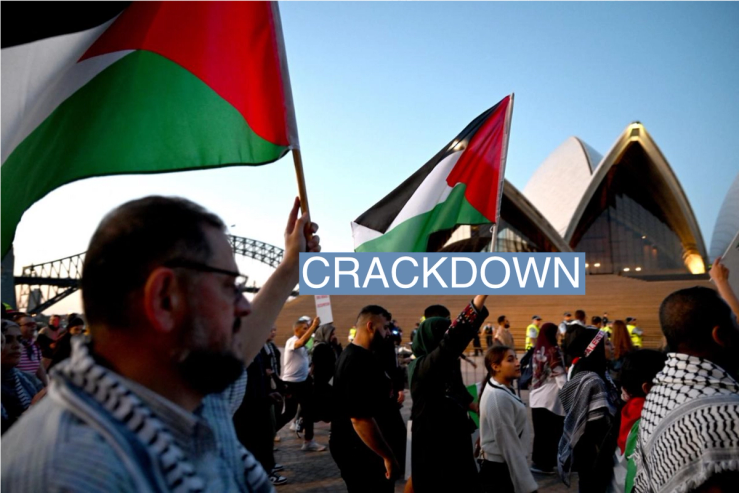The News
Amid ongoing fighting between Israel and Hamas, several Western governments have clamped down on demonstrations in support of Palestine that have ranged from peaceful marches to protests glorifying violence towards Israelis.
French authorities banned all pro-Palestinian demonstrations, while leaders in Australia made similar warnings after a pro-Palestine rally in Sydney ended with activists shouting antisemitic slogans. Germany banned the pro-Palestinian group Samidoun, saying its members were celebrating Hamas’ attack on Israel.
In Vienna, police also shut down a pro-Palestinian protest that coincided with a pro-Israeli demonstration, citing the phrase “from the river to the sea” that was used in invitations, which alludes to the elimination of Israel.
— Karina Tsui contributed to this report.
SIGNALS
The crackdown on pro-Palestinian protests raises important questions over freedom of speech and assembly, lawyer Greg Barns writes in The Sydney Morning Herald. Governments should be cautious when thinking about outright banning a demonstration, and should instead use existing laws around hate speech to charge people who attend them and incite hatred, he argued. In the U.K., Home Secretary Suella Braverman said waving a Palestinian flag could be an offense “when intended to glorify acts of terrorism,” while opposition leader Keir Starmer said it’s “very important that at times like this we don’t conflate peaceful discussion of Palestinian issues with Hamas.”
While the EU has been the largest foreign donor to Palestinian territories, the bloc’s ties to Israel have deepened in recent years. “Geopolitical realities have worked in Israel’s favor” after the country made it a priority to thaw relations with the EU, Politico reported, and the heads of the EU Commission and Parliament plan to visit Israel on Friday. While fewer than half of Western Europeans picked a side in the Israel-Palestine debate in a YouGov poll from July, those that did showed more sympathy for the Palestinian cause than support for Israelis — with the exception of Germany, where respondents were evenly split on the issue. However, the public had a tendency to believe that their governments sympathized more with Israel.
The EU’s response to the conflict has caused division and confusion among its member states. European governments were in disarray over the question of cutting off aid to Palestine. They also disagreed over the EU’s statement condemning Hamas “in the strongest possible terms,” with some countries like Ireland, Luxembourg, and Denmark wanting the EU to push for de-escalation, while other member states advocating for a strong statement of solidarity with Israel.
Within the U.S., the conversation surrounding pro-Palestine rallies has become politically fraught. Following Hamas’s attack over the weekend, groups held such rallies across the country that were largely condemned by elected officials across the political spectrum. The New York City chapter of the Democratic Socialists of America faced backlash for promoting a pro-Palestine rally in Times Square, leading at least one member of Congress to cut ties with the party. The chair of the state Democratic party said anyone endorsed by the group would face future repercussions, Politico reported.


